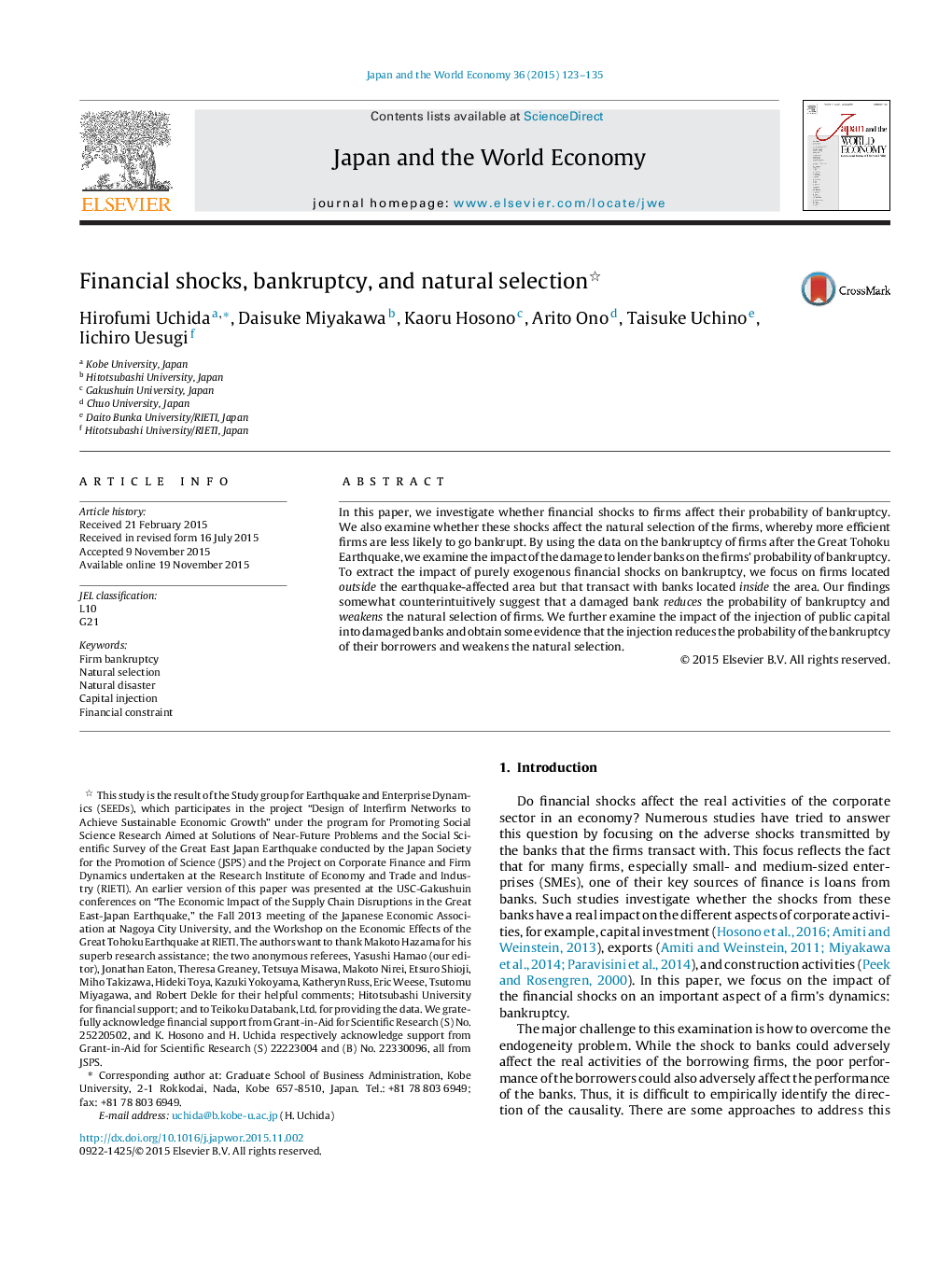| Article ID | Journal | Published Year | Pages | File Type |
|---|---|---|---|---|
| 5086099 | Japan and the World Economy | 2015 | 13 Pages |
â¢We investigate how financial shocks affect the probability of bankruptcy.â¢We use the Great Tohoku Earthquake as a natural experiment.â¢A damaged bank reduces the probability of bankruptcy for borrowing firms.â¢A damaged bank weakens the natural selection of firms.â¢We obtain some evidence that public capital injection to banks drives these findings.
In this paper, we investigate whether financial shocks to firms affect their probability of bankruptcy. We also examine whether these shocks affect the natural selection of the firms, whereby more efficient firms are less likely to go bankrupt. By using the data on the bankruptcy of firms after the Great Tohoku Earthquake, we examine the impact of the damage to lender banks on the firms' probability of bankruptcy. To extract the impact of purely exogenous financial shocks on bankruptcy, we focus on firms located outside the earthquake-affected area but that transact with banks located inside the area. Our findings somewhat counterintuitively suggest that a damaged bank reduces the probability of bankruptcy and weakens the natural selection of firms. We further examine the impact of the injection of public capital into damaged banks and obtain some evidence that the injection reduces the probability of the bankruptcy of their borrowers and weakens the natural selection.
